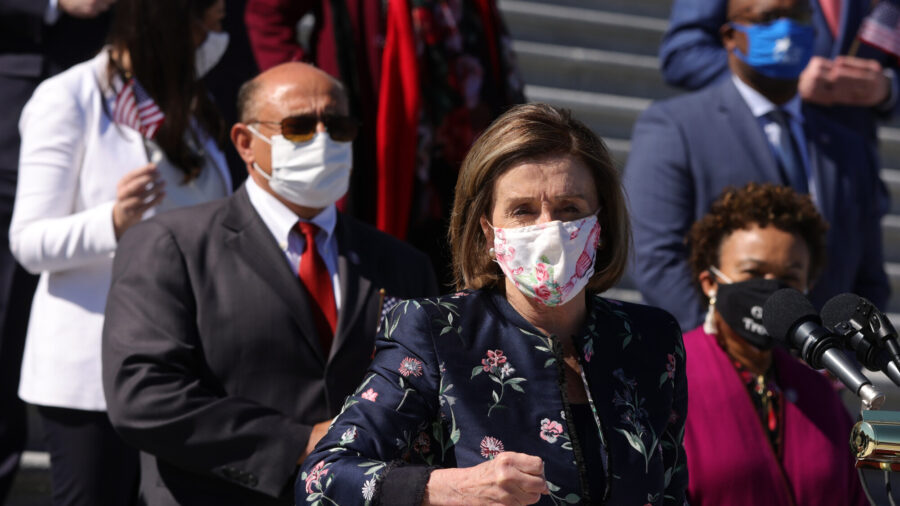The House of Representatives in the late hours of March 3 passed a sweeping election reform bill that, if signed into law, would affect multiple aspects of the electoral process and campaign financing.
H.R. 1, also called the For the People Act, passed the Democrat-controlled House on a largely party-line vote of 220-210. All Republicans voted against the bill. They were joined by Rep. Bennie Thompson (D-Miss.), the only House Democrat who voted against the bill.
“My constituents opposed the redistricting portion of the bill as well as the section on public finances. I always listen and vote in the interest of my constituents,” Thompson said in an emailed statement to The Epoch Times.
The proposed legislation would need 60 votes to overcome a filibuster in the Senate. Democrats currently hold the smallest possible majority in the Senate, with 48 Democrats and two independent senators who caucus with them. It is unclear whether there would be enough support, with the bill needing 10 Republicans to overcome the filibuster.
President Joe Biden, a Democrat, has said he would sign the bill into law if it reaches his desk.
“This is called the For The People bill. And in doing so, we combat big, dark, special-interest money in politics and amplify the voice of the American people,” House Speaker Nancy Pelosi (D-Calif.) said Wednesday at an event prior to a vote on the bill.
The Biden administration, which has strongly pushed for the bill, praised its passage, saying the legislation is “urgently needed to protect the right to vote and the integrity of our elections, and to repair and strengthen American democracy,” according to a statement obtained by The Hill.
A previous version of the bill had passed the Democrat-controlled House 234-193 at the beginning of the 116th Congress in 2019 but ultimately did not get taken up in the Republican-controlled Senate.
The controversial bill, which spans nearly 800 pages, would impose requirements on voting procedures across the entire country.
The bill imposes new campaign finance rules, including requiring additional disclosure of campaign donors and disclaimers on political advertising.
It also sets up a new optional “Freedom From Influence Fund” for congressional campaigns to encourage small dollar donations. Under the funding program, a candidate would receive six times the amount of a given small dollar contribution, which can be up to $200. The money for the fund would come from a new 4.75 percent surcharge on fines and settlement proceeds that corporations pay to the federal government.
The bill furthermore restructures the Federal Election Commission (FEC) as a partisan majority-rule campaign regulatory agency. It also creates extensive new restrictions on freedom of speech during campaigns, in part by overturning the Citizens United Supreme Court case which had dissolved certain limits on corporate and union political spending. The legislation would also prohibit coordination between super PACs and political candidates.
The bill also requires disclosure of donors to religious and nonprofit advocacy groups, and enables incumbent congressmen and their challengers to receive a salary from campaign funds.
Among multiple provisions regarding voting, it would force states to implement a minimum of 15 days of early voting, offer mail-in ballots, facilitate online voter registration, and allow no-excuse absentee balloting.
For mail-in ballots, states must count ballots if they are received within 10 days after Election Day, according to the bill.
It also requires states to automatically register eligible voters and offer same-day voter registration. States would also face more conditions in order to remove registered voters from their rolls.
Under the bill, felons would be able to vote after they have completed their sentences.
With regard to congressional redistricting, the bill creates an independent state commission—to be made up of academics, public officials, and private citizens—to handle the process, instead of having it be handled by state legislatures. Democrats say the provision seeks to end partisan gerrymandering.
Mark Tapscott and The Associated Press contributed to this report.
From The Epoch Times

